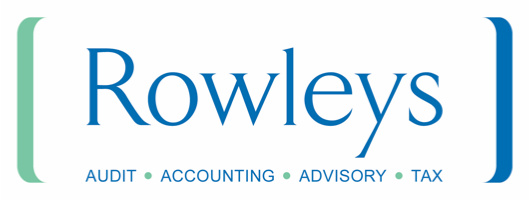News & Events
An employer’s guide to calculating National Minimum Wage
21st July 2023
As an employer in the United Kingdom, it is essential to comply with the regulations surrounding the National Minimum Wage (NMW). Failure to do so can lead to serious consequences, including legal penalties and damage to your reputation. To avoid any potential pitfalls, it is crucial to correctly calculate the NMW and ensure that employees are always paid at or above the minimum wage rate. In this article, Rowleys Payroll Manager, Rebecca Gotch, discusses the key considerations for employers.
Current rates of National Minimum Wage
It is important for employers to be aware of the current rates of NMW. The rates vary depending on the age of the employee and whether they are classified as an apprentice. At the time of writing this article (July 2023), the following rates apply:
- Standard adult rate (age 23 and over): £10.42 per hour.
- Those aged 21-22: £10.18 per hour.
- Employees aged 18-20: £7.49 per hour.
- Employees under 18 years old: £5.28 per hour.
- Apprentice rate (apprentices under 19 years old or in the first year of their apprenticeship): £5.28 per hour.
It is crucial for employers to regularly review and adjust their employees’ wages to ensure compliance with the current rates of the National Minimum Wage. Failure to pay the appropriate minimum wage can result in severe penalties, including financial fines and potential legal action. Employers should stay vigilant and stay updated on any changes to the rates to avoid any inadvertent violations.
Payment for working time
One common mistake employers make is failing to include all the time employees work when calculating the NMW. It is vital to recognise that payment for working time includes every minute an employee is engaged in their duties. This includes any time an employee spends on activities that are necessary for their role, such as arriving early, staying late, working through lunch breaks, or attending meetings and training sessions. All must be considered and factored into the employee’s wage calculation to ensure compliance with NMW regulations.
What should not be included when calculating National Minimum Wage?
While it is crucial to include all relevant working time, certain elements are excluded when calculating the NMW:
- Allowances: Shift allowances, car allowances, or any other similar allowances are not considered part of the NMW calculation.
- Tips and service charges: Tips received by employees or any service charges imposed on customers are not to be included as part of the NMW.
- Expenses: Reimbursements for business-related expenses, such as travel or equipment, are separate from the NMW calculation.
Potential pitfalls for employers
To avoid inadvertently violating the NMW regulations, employers should be mindful of the following situations that have the potential to catch them out:
- Dress code: Requiring employees to wear specific attire, such as black trousers, might involve costs for the employee and this could push their earnings below the NMW.
- Tools: If certain tools or equipment are necessary for employees to perform their job, it is the employer’s responsibility to provide them. Requiring employees to purchase their own tools could result in potentially violating NMW requirements.
- AEO Admin Charge: When making deductions from an employee’s earnings due to an attachment of earnings order, employers who deduct the £1 administrative charge need to consider if this then reduces the employee’s pay below the NMW.
- Deductions: Any deductions made from an employee’s wages, such as discounts on food provided at work, should be carefully assessed to ensure they do not bring the employee’s earnings below the NMW threshold.
- Training fees: If an employee leaves the company and you wish to recoup the costs of compulsory training, it is crucial to ensure that any deductions made do not result in the employee receiving a wage below the NMW.
Compliance with the UK National Minimum Wage is a vital responsibility for employers. Calculating the NMW accurately and ensuring employees are always paid at or above the minimum wage rate is crucial. By understanding the considerations outlined in this article, such as including all working time and avoiding deductions that could reduce wages below the NMW, employers can stay legally compliant.
It is always advisable for employers to seek professional advice to ensure they remain up-to-date with any changes to the NMW regulations.
For more information on NMW, visit the HMRC website.
Our CIPP-qualified payroll experts manage all aspects of payroll ensuring that NMW is calculated correctly. We work with hundreds of clients of different sizes To find out more about our payroll services, please contact Rebecca Gotch, either by email: rebecca.gotch@rowleys.biz or call: 0116 282 7000.
